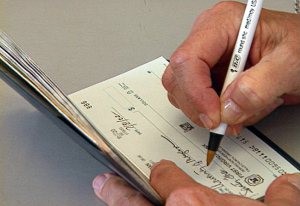When You Have to Break Your Lease
Even the most responsible renters must sometimes face unexpected circumstances and life-changing events that may alter their ability to remain in their existing lease. When job changes, military orders, major illness, injury or other unplanned experiences show up, breaking your lease may be your only option. In those cases, it’s important to know what steps to take to ensure that you act responsibly to protect your credit, your finances and your legal record.
Property owners and managers have residents sign leases for security. Every time an apartment becomes vacant, management teams must work quickly to fill the space in order to ensure that rent is paid. Landlords and management teams rely on rent payments to cover the costs of maintaining and staffing their properties. Over time, unpaid rent and unexpected vacancies can place financial burdens on landlords. Having tenants sign a lease ensures financial security for the property and makes possible important improvements and upkeep that satisfy all residents in a community.
Breaking your lease should always be a last resort, but when you absolutely must begin the process, remember that there may be serious consequences involved. Breaking your lease can negatively impact your credit report, and you may still be required to pay the remaining rent for the term of your lease. In a worst case scenario, you may also face legal action that can be devastating. Once you are certain that you must begin the process, take careful steps to ensure your security:
- Stay Calm. If you have found yourself in a position to have to break a legal commitment, you’ll need your wits about you to move forward. Take a deep breath, assess your current situation and stay positive. You’ll need mental clarity to help you sort through solutions, so stay calm and find your focus.
- Carefully Review Your Lease. Read through the rental agreement with a fine-toothed comb to determine whether you have opt-out clauses, mandatory penalties or other information that can help you to know what’s in store. Once you’ve read through your lease and you know where you stand legally, you’ll be able to take next steps.
- Talk to Your Management Team. Depending on your reason, you may be able to collaborate with your management team and landlord to create a positive solution for all parties. Remember that your landlord and management team are humans, too, and beginning the conversation with them with complete honesty and a solutions-focused attitude will go a long way.
- Ask about a Payment Program. When you break your lease in Virginia, Landlords usually charge a two month penalty, but are often willing to work with residents on paying these fees on a payment schedule. Staying in touch with your former Landlord and fufilling the terms of your lease protects your credit and future rental refrerence.


